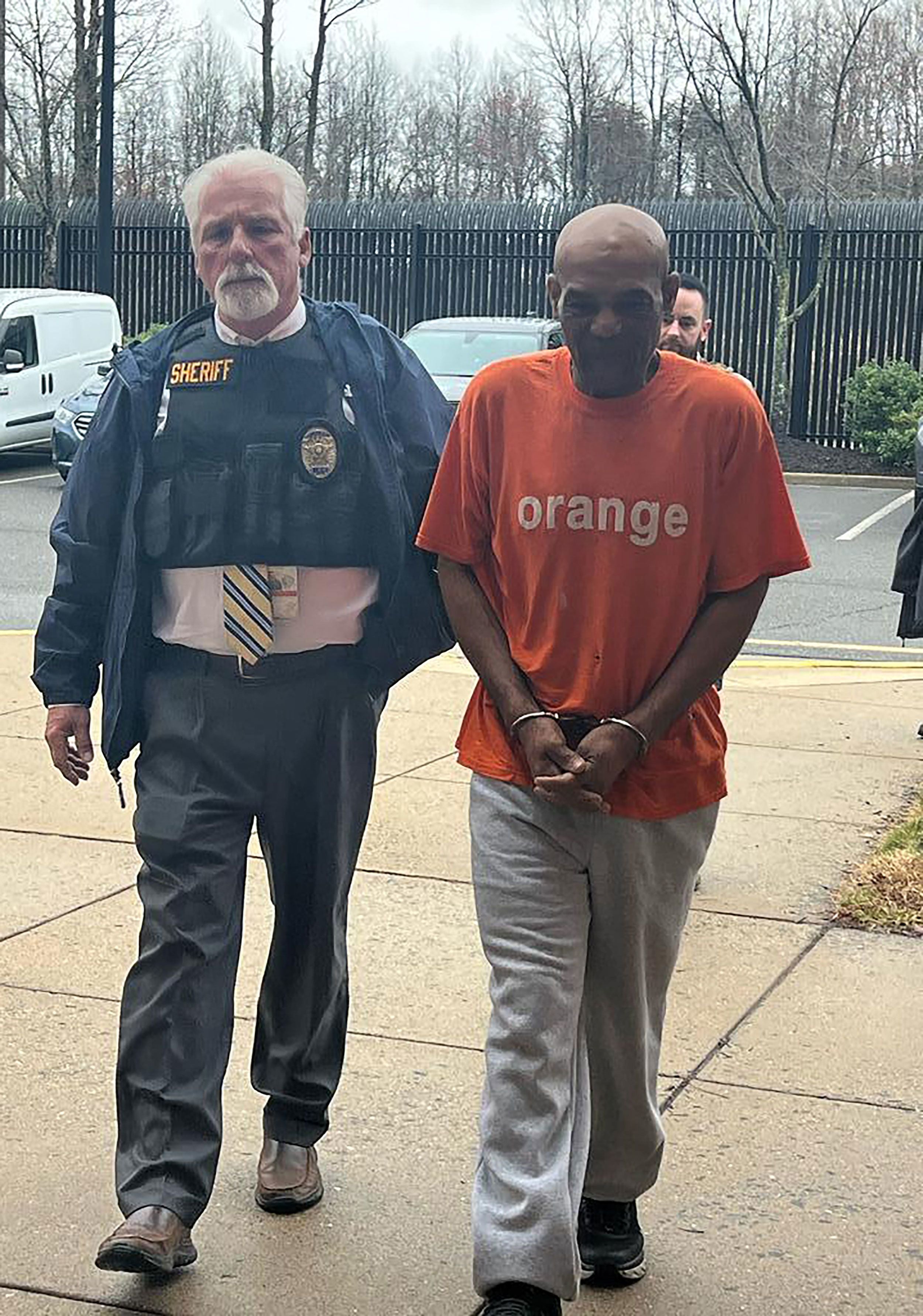Man arrested after DNA helps crack cold case killing nearly 40 years later as police link him to another case
(CNN) — For more than 35 years, two families in Virginia have been left without knowing who brutally killed a beloved member of each of their families.
Now, a major investigative break finally has arrived for one family – and perhaps soon could for the other – thanks to advances in science one grieving mother called “incredible.”
On November 14, 1986, Jacqueline Lard, 40, was last seen closing for the day at her realty office, the Stafford County Sheriff’s Office said Tuesday in a news release. She never made it home.
The next morning, employees at neighboring businesses called the police after they discovered a “crime scene at the realty office which indicated a horrific struggle.” The following day, her body was discovered underneath a pile of discarded carpet in a wooded area in Woodbridge, about 30 miles southwest of Washington DC.
Just a few years later in 1989, Amy Baker, 18, was visiting family in Falls Church when she went missing while driving back home to Stafford County, according to Fairfax County Police. On March 29, 1989, her unoccupied vehicle was found on the side of the road and was towed by police the following day, as it was presumed abandoned.
On March 31, her family searched the area where her vehicle was found and discovered her body in a wooded area near the exit ramp of Interstate 95 in Springfield, west of Alexandria.
Detectives investigated and determined “Baker’s car had run out of gas on the exit ramp,” Fairfax County Police said. “They believe she left her vehicle to seek help at the nearest gas station, encountering the suspect who subsequently fatally strangled her.”
In both cases, forensic evidence was collected but the cases eventually went cold.
Detectives join forces after a DNA breakthrough
However, authorities have found success in sending DNA from cold cases to labs in recent years. Advancements in forensic science technology and the use of forensic investigative genetic genealogy, which combines DNA analysis with traditional genealogy research, have allowed more breakthroughs with DNA evidence collection. It has become increasingly used as a powerful tool in law enforcement investigations to finally solve some of the country’s most notorious cold cases, such as that of Golden State Killer in 2018.
It wasn’t until 2021 that DNA led to a breakthrough in the Virginia cases.
Fairfax County Police Department’s Cold Case detectives submitted evidence from Baker’s cold case to DNA Labs International and a DNA profile was developed, police said.
Meanwhile, a detective in Stafford County was using forensic investigative genetic genealogy to help identify Lard’s killer.
“Uploading this profile to the Virginia state database revealed a link between Baker’s death and the ongoing homicide investigation of Jacqueline Lard in Stafford County,” Fairfax County Police said.
Detectives from both counties “joined forces, determined to bring this murder suspect to justice,” police said.
Then, forensic investigative genetic genealogy identified a family name for the suspect in December, according to the Stafford County Sheriff’s Office. A search warrant for DNA was obtained for Stafford County resident Elroy Harrison, 65.
Two months later, Harrison’s DNA was reported as a match to the DNA evidence authorities submitted.
Harrison was indicted by a Stafford County grand jury on Monday for the first-degree murder of Jacqueline Lard, as well as abduction with the intent to defile, aggravated malicious wounding and breaking and entering with the intent to commit murder, according to the sheriff’s office. He was arrested Tuesday and placed in the Rappahannock Regional Jail without bond.
At a hearing Wednesday, Harrison was assigned an attorney, and CNN has reached out to the attorney for comment. Harrison remains held without bond, and will be arraigned next month, according to the sheriff’s office.
Nobody has been charged in Baker’s cold case yet, but the Fairfax County Police Department says it is closing in on the case, noting that “forensic evidence has linked the same suspect” in Lard’s murder to Baker’s homicide. The Stafford County Sheriff’s Department said Tuesday that Fairfax County police investigators are working with the Fairfax County Office of the Commonwealth’s Attorney to seek charges against Harrison for Baker’s murder.
As of Friday morning, no charges have been filed, a spokesperson with the Fairfax County Office of the Commonwealth’s Attorney said.
Baker’s mother, Sue Baker, who virtually attended Harrison’s hearing in Stafford County Wednesday, called the developments in the case “surreal” and the advancements in forensic science “incredible.”
“Fairfax is taking care of this, and they will, but right now we want Jacqueline Lard’s case taken care of so we know he’s never coming out of jail,” Sue Baker told CNN.
“We never expected this,” Sue Baker said. “I never gave up. I told her I’d never give up.”
The Stafford County Sheriff’s Office told CNN that Lard’s family is not interested in making a comment at this time.
CNN’s Michelle Watson contributed to this report.
